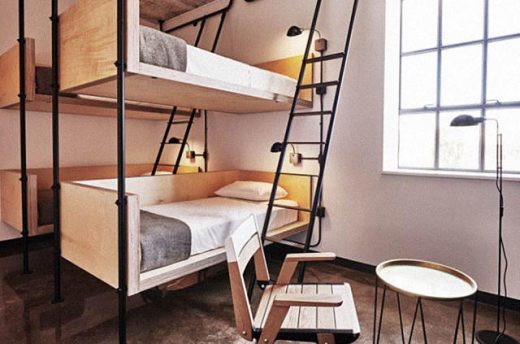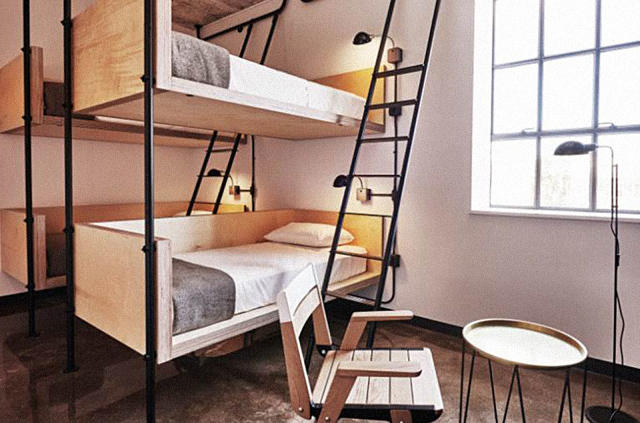The Upscale Hostel Revolution: Can Budget Travelers Say “Bye-Bye” To Slumming It?
When I made my way through European hostels a decade ago, I remember dreaming of a future in which I could pay for something fancy. Back then, fancy meant privacy, pools, mosaic-floor lobbies, and coffee drinks with foam. It meant anything more upscale than the bare, bleak, and decrepit hostels that would later inspire a horror film franchise.
But today’s thrifty traveler has the option of bypassing the linoleum floors and soggy muesli at the communal breakfast table. Now, they have their pick of chic, cool hostels complete with award-winning bars, luxe bath products, and even personal reading lamps.
There are so many slick new options, it’s almost unfair.
Communal Living
The newly opened Hollander in Wicker Park, Chicago, is a self-described “high-end hostel” ($45 a night) with 66 beds in a renovated historic warehouse with modern industrial interiors designed by French design studios Ciguë and Delordinaire. It offers a “social stay” program, where guests—via social media—can see who will be sleeping alongside them before booking a room. Perks like that reduce the anxiety of sharing rooms with strangers.
“You can curate your stay,” said Carlos Couturier, founder of Grupo Habita small hotel properties, which includes The Hollander. That property blends together the lively bar and public spaces you’d expect of a hostel with design touches—such as exposed brick and lots of natural wood—reminiscent of a boutique hotel. These details make it easy to forget The Hollander is a hostel.
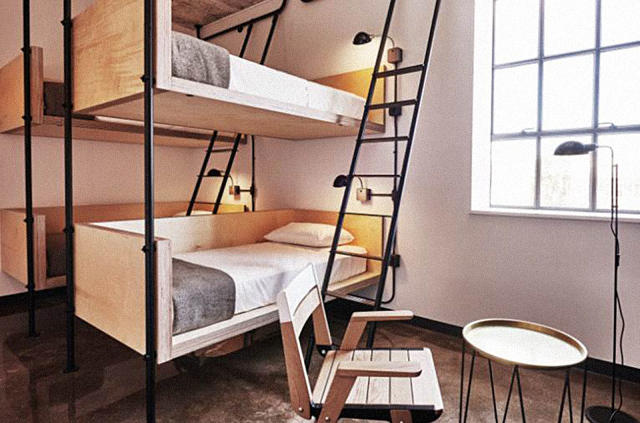
“It’s a very fine line in hospitality industry of what to call what,” Couturier says.
Unlike hotel chains, however, The Hollander resembles more of a hostel in that its chief concern is a social one: catering to travelers’ desire to connect with one another. The travel industry does not assume these tourists are logging off on vacation, according to Douglas Quinby, vice president of research of industry analyst firm Phocuswright. Connecting with like-minded travelers is still a big reason why people choose hostels.
“Today, most hostels focus on enabling that social dynamic through lobby designs, events, and activities to foster interaction among the guests,” Quinby says. Social travel networks like Gogobot and HelloTel have tried to hook up travelers in advance, but very few have succeeded. Socializing face-to-face is still chief. The Hollander hopes its social stay program will help accelerate that.
Hostels are big business, and overhauling their very concept certainly helps reach new audiences. According to a Phocuswright study, there are 18,000 hostel properties worldwide, for which travelers spent $5.2 billion in the last year, predominantly in Europe and Asia, which account for nearly two thirds of global hostel revenue. The market is expected to grow 7% to 8% per year through 2018, reaching roughly $7 billion in revenue.
Most hostel travelers are millennials, with three out of four travelers under the age of 35, according to a joint study by Phocuswright and booking engine Hostelworld. Roughly 60% of these travelers are solo. Many have below-average incomes but “their unrivaled passion for travel drives more trips, longer stays, and much higher overall spend on travel.”
The amenities reflect this demographic. The Hollander has an on-site bike repair shop. Other new hostels around the world offer heated swimming pools, pop-up shops, tattoo parlors, even screening rooms. Hospitality operators understand that travelers don’t want the cookie-cutter experience. They want unique, interesting, thoughtful. They want their stays like their beer: Crafted.
“[Hostels] are coming at it from an angle of what makes a great guest experience, as opposed to, ‘We want to sell this property to consumers,’” says Jason Clampet, editor-in-chief and cofounder of the travel news siteSkift. “It’s thinking about how travelers really live and travel now.” These brands are primarily focusing on public spaces, improving ways for guests to interact.
A Room Of One’s Own
The Freehand in Miami, owned by the Sydell Group, is one standout among new hostels. The three-year-old, 75-room property, which starts at $27 a bed, offers art classes and bocce as a way to redefine summer camp from a South Beach perspective. The hostel’s courtyard bar, the Broken Shaker, has a cocktail menu that changes weekly and features ingredients grown on the property. The Broken Shaker has been nominated for two James Beard Awards and named one of the “The World’s 50 Best Bars” for the past three years.
Nurturing a top-notch food and beverage program as well as solid design elements were top priorities for the Sydell Group. As CEO and founder Andrew Zobler explained, the idea was that even if people are sharing rooms, once they go downstairs, they’re treated to the same swank dining experience as boutique hotels. The challenge of combining a luxe feel with hostel culture is what Zobler sought to address.
“What really fascinated me about hostels was this idea of how social they were, that people who went there really wanted to interact with each other,” he says. “We thought there was an empty place in the U.S. market: No one was really doing hostels in a way that we would really like to experience it.” The Freehand experience includes game nights, pop-up activations, and other one-off experiences to, Zobler says, “bring people together.”
The social opportunities attract more than just peregrinating millennials. Over the last year, the Freehand experienced a significant increase in families with kids and schmoozy startup folks. In fact, Hostelworld findings report that 9.3% of bookings are made by travelers age 41 and up, while another 20% are between 31 and 40 years old.
To meet those demands, Freehand invested in upscale shared accommodations that include amenities like TVs and phones, and set aside more private rooms for people who can afford to book their own rooms, but wants the lively, friendly surroundings of a hostel. Currently, 9 out of 10 hostels worldwide offer private rooms, cracking the stronghold of dormitory-style rooms.
Sydell Group expanded to Chicago last year, and will soon set up hostels in New York City and downtown Los Angeles. The L.A. property will be its largest, with 167 private accommodations in addition to 59 shared rooms. There will be a rooftop pool and lounge as well as “a tea-inspired cocktail bar.”
The New York location will have its own distinct flavor. The restaurant will be overseen by the acclaimed restaurateur Gabriel Stulman’s Happy Cooking Hospitality (of Joseph Leonard and Jeffrey’s Grocery fame). As for entertainment, Freehand New York will partner with Bard College’s Live Arts on an artist-in-residence program where selected artists will have the opportunity to live, work, and exhibit at the hotel.
The Sydell Group hired the design firm Roman & Williams for each Freehand property. Miami’s eclectic camp scheme features faded coastal colors and tropical furniture mixed with vintage pieces. In Chicago, knitted wall hangings create a cozy, Midwestern vibe. And in Los Angeles, wood-covered walls, colorful artwork, and terrariums capture the state’s bohemian and desert cultures.
Roman & Williams tried to strike a balance between inventive and homey. When describing the process, designer Stephen Alesch calls to mind a Wes Anderson of interior design.
“We had a different spirit animal for each location that reflects the surroundings, which is hidden in the décor,” he says via email. “For Miami, that was an alligator; for Chicago, an octopus; for Los Angeles, an owl. We love these hidden aspects that fans of the brand can discover as they stay at the various locations.”
(Side note: I’m pretty sure that the bare accommodations I endured in Vienna 10 years ago failed to provide hand soap, let alone a spirit animal. If it did, it might have been a dead, stuffed pigeon.)
The Boom Is Just Beginning
One other brand focused on bars and shared public spaces is Generator, whose portfolio includes 11 properties in such major European cities as Amsterdam, Stockholm, and Rome. While most hostels average fewer than 100 beds, Generator boasts a whopping 500. But as CEO Fredrik Korallus says, “The least important thing we sell is the bed.”
What’s crucial, he insists, is “experience.” The emphasis is on dining, with the recently appointed celebrity chef Luke Thomas spearheading menus across their collections. Lobbies are host to exhibitions of local emerging artists’ work, comedy shows, guest DJs, and poetry readings. Rooms are functional, clean, and efficient, but people primarily “come to enjoy the social vibe,” according to Korallus.
In the ’80s, boutique hotels disrupted the hotel industry by taking the high design elements of big chains and placing them in smaller, more intimate settings. Generator sees the same revolution coming for the thrifty traveler.
“Historically, hostels have not been about exciting, innovative, retail-oriented, food, restaurants, and bars,” Korallus says. “It’s been more about a highly affordable stay for the night and breakfast, and that’s it… We’ve been focused on design and experience, in that order.”
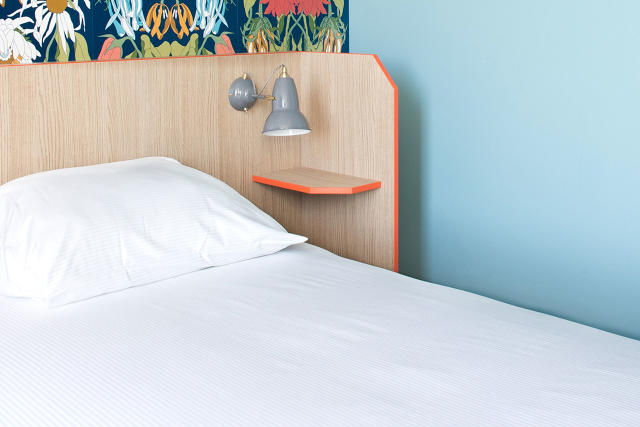
In 2017, Generator will expand into Miami, then the East Coast cities of Boston, Philadelphia, and eventually New York City (once some legal issues are resolved), before heading West.
And until there are more high-end hostels to crowd the market, expansion is likely to continue. None of the brands I spoke with express concern over direct competition just yet, but they do acknowledge the importance of making a place for themselves on the greater hospitality landscape. Depending on travelers’ chief preferences, these new hostels compete with boutique design hotels, lifestyle travel brands (like the trendy Ace hotel in Manhattan), and lower-priced inns or traditional hostels.
Then there’s Airbnb. “Everyone in the hotel space is competing to some extent with Airbnb,” Freehand’s Zobler says. “That’s kind of the reality of the age.”
But can you find a chic Airbnb bed for under $100 in a major city? That’s still a tall order that might be best fulfilled by these new hostels. “Airbnb being a budget option is a myth,” says Clampet, who sees hostels continuing to dominate the lowest end of travel price points.
As more stylish hostels emerge and mature hotels—both chain and boutique—might start to feel the heat.
As Freehand’s Zobler explains, modern day hospitality must think beyond setting up a standard dining room. He plans to further expand his vision for a “place that has really good food and beverage and good design. Those are the things we think you need to have a good hospitality experience,” he says. “It doesn’t necessarily mean you have to pay a lot for it.”
A bedroom at the Generator Paris, one of several posh new hostels in major cities.
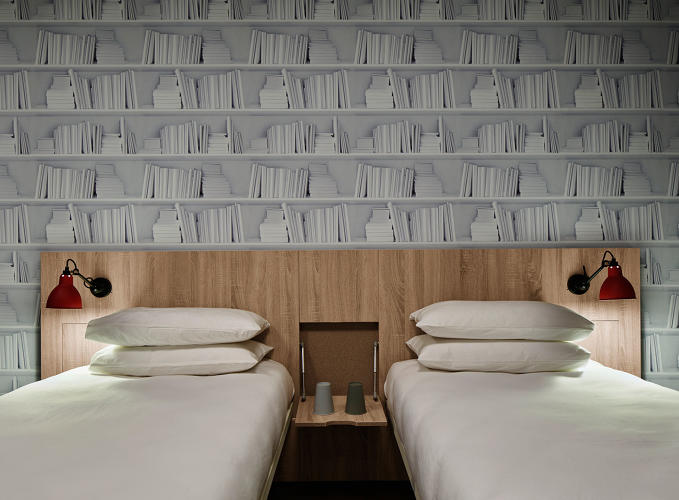
The Generator Paris
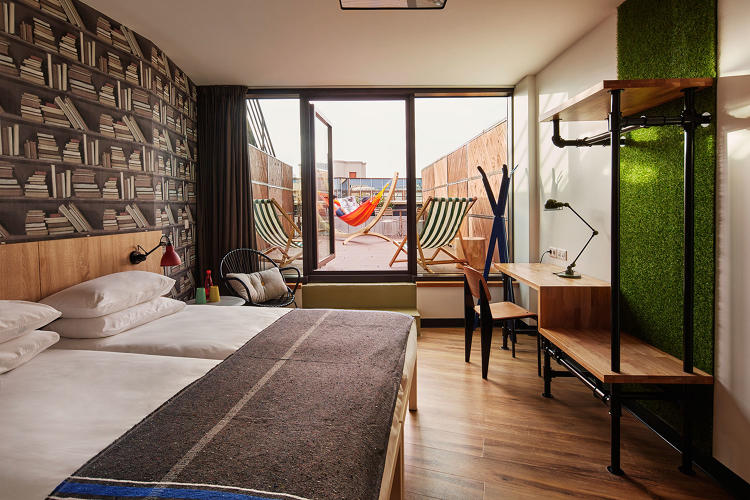
The Generator Paris
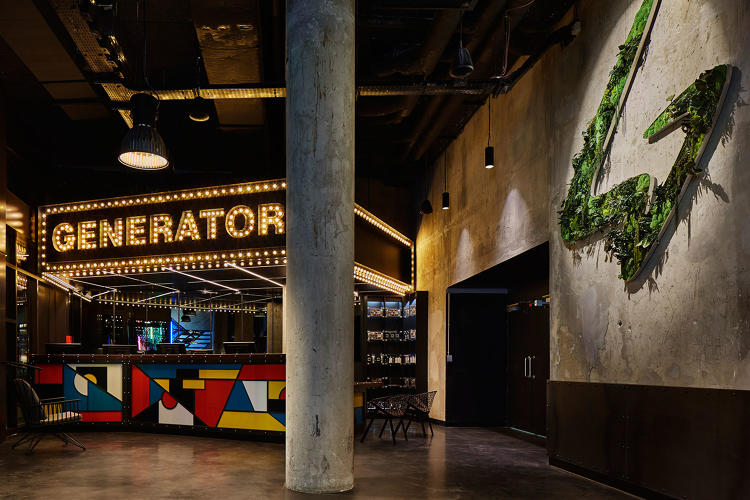
The Generator Paris
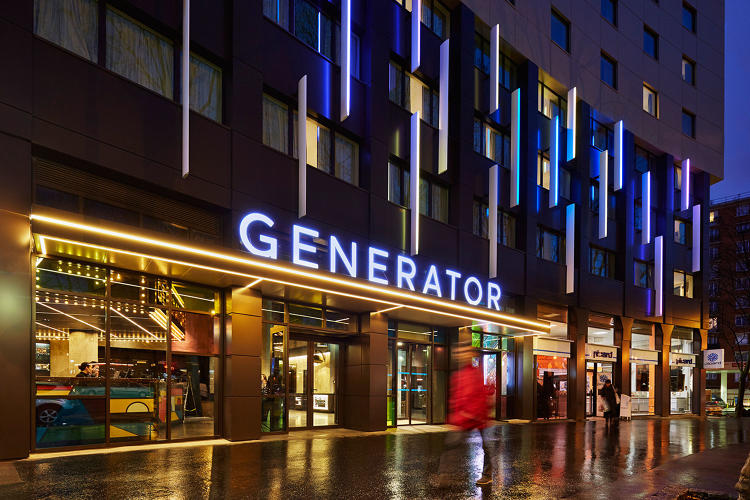
The Generator Paris
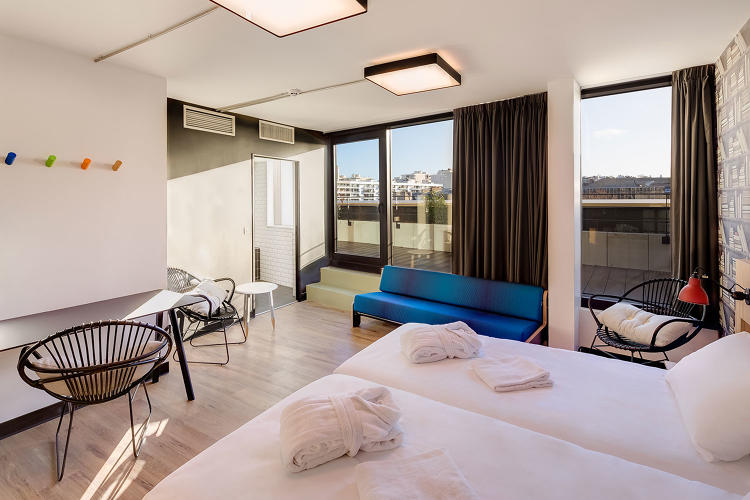
The Generator Amsterdam
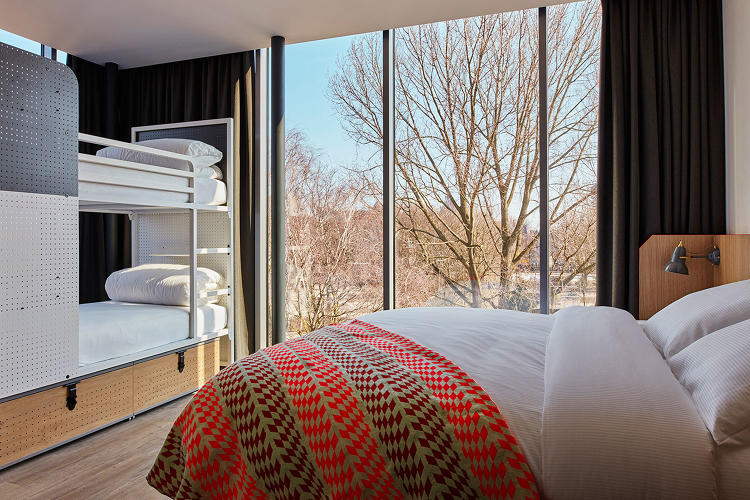
The Generator Amsterdam
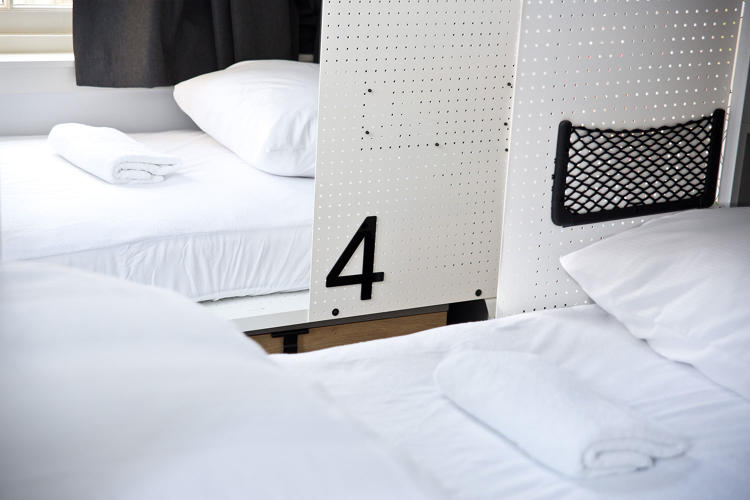
The Generator Amsterdam
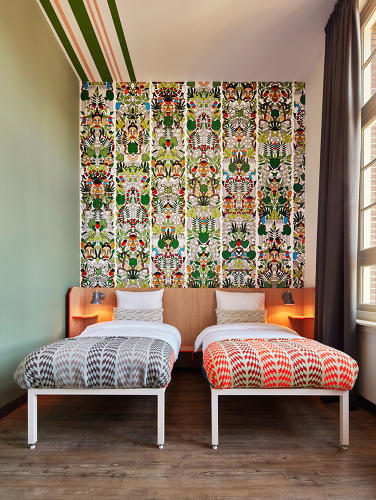
A bathroom at the Generator Rome
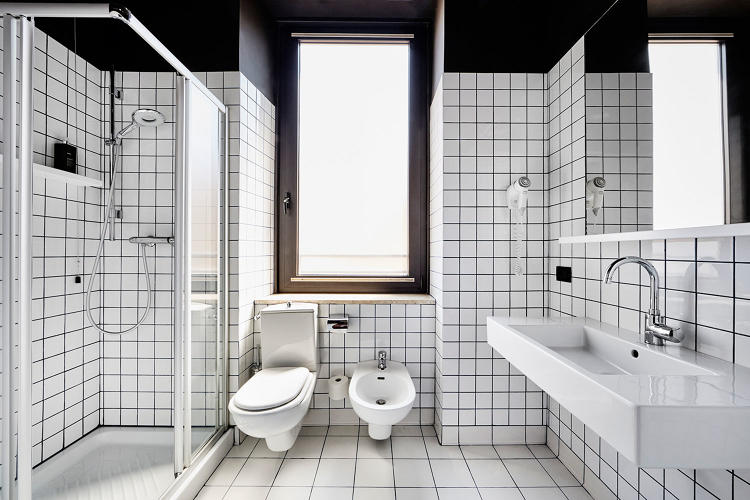
The Generator Rome
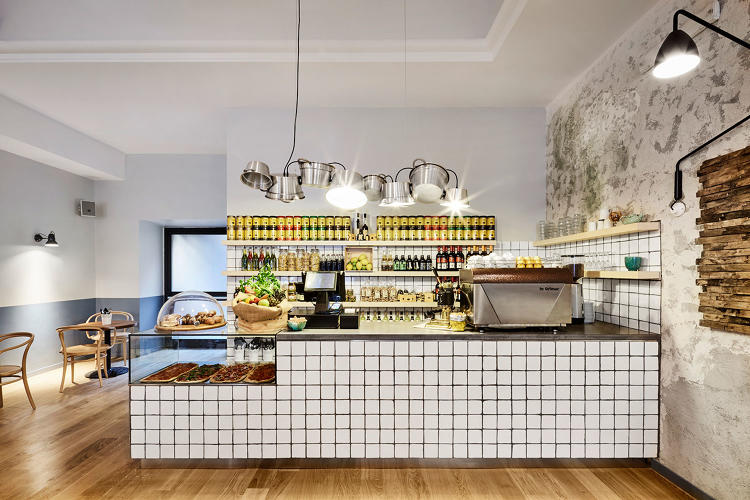
The Generator Rome
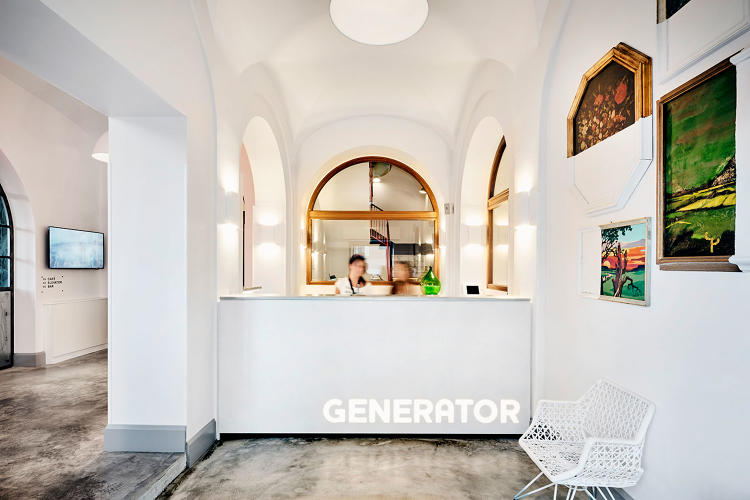
The Generator Rome
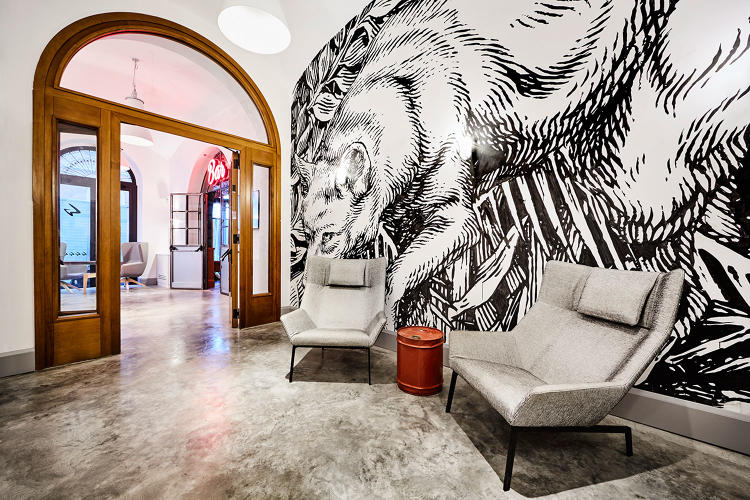
Check-in at the Generator Stockholm
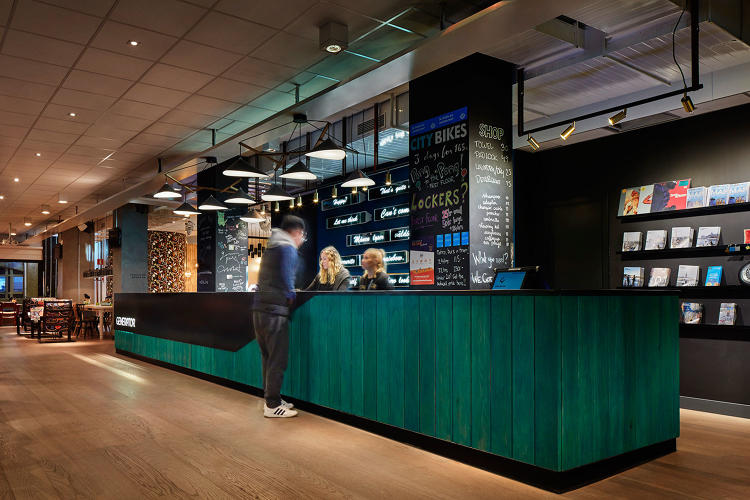
The Generator Stockholm
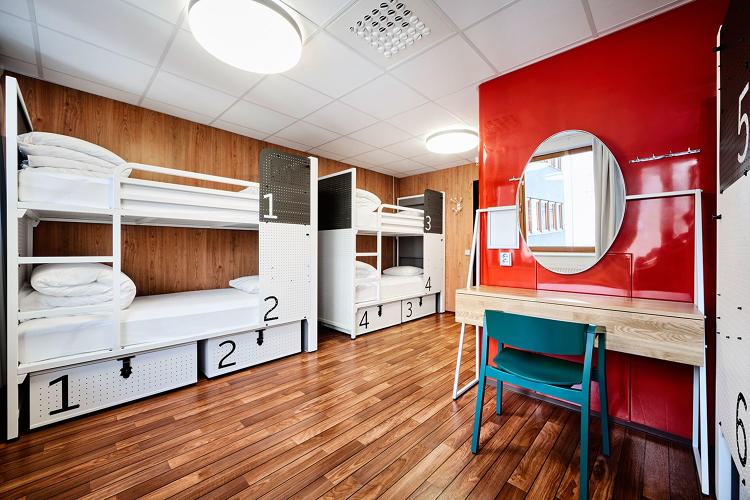
The Generator Stockholm
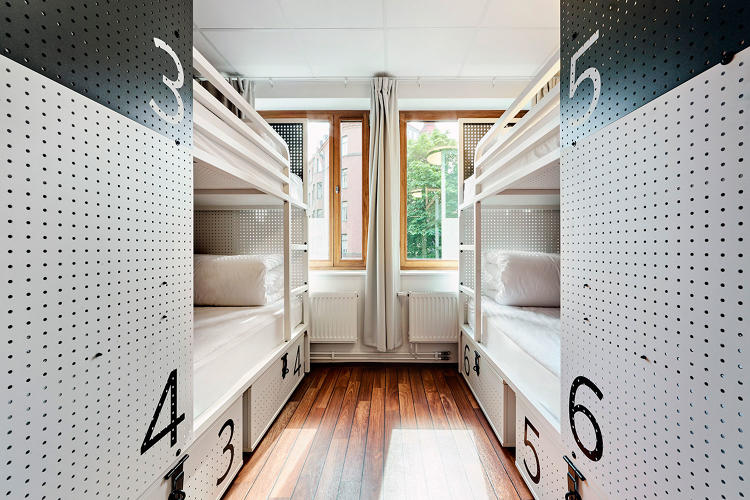
The Generator Stockholm
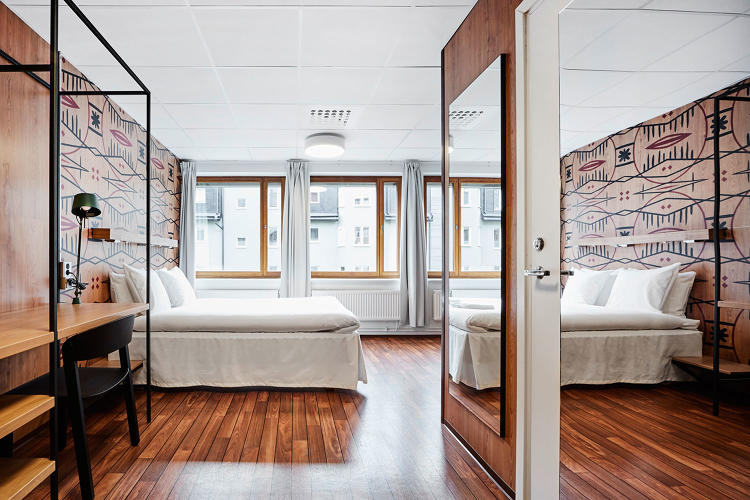
The Generator Stockholm
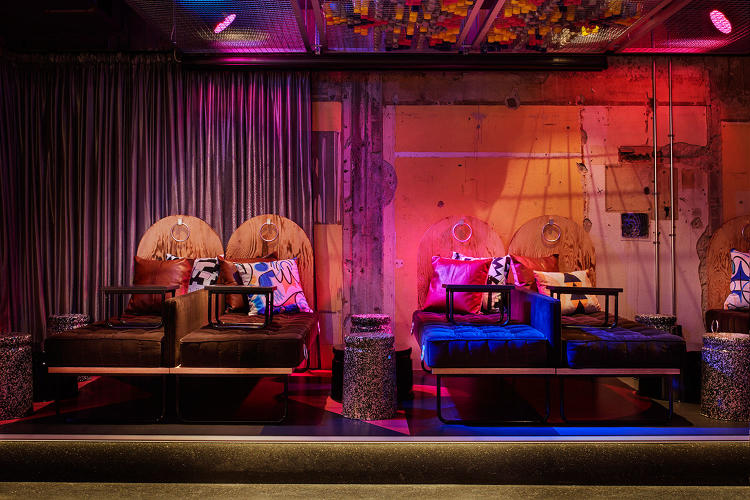
The Generator Stockholm
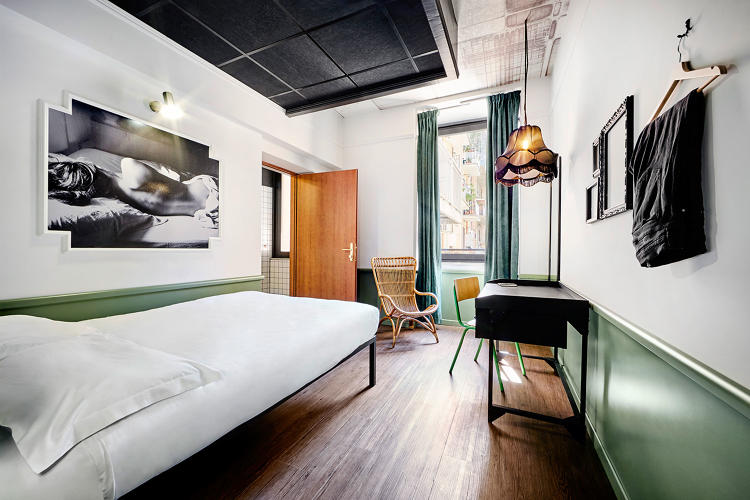
The Generator Stockholm
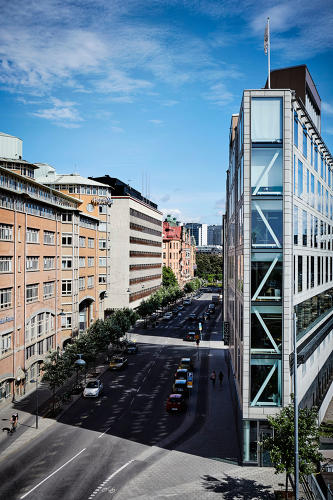
Fast Company , Read Full Story
(39)

